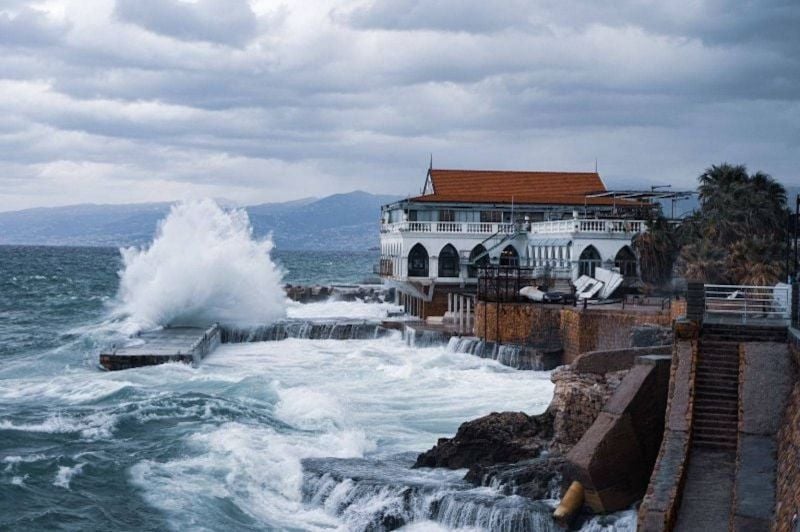
Since Feb 6, some Lebanese have become anxious about tsunamis rising from the Mediterranean, at Beirut’s Ain al-Mreisseh for example. Earth scientist Tony Nemer says this fear is largely unwarranted. (Credit: Mohammad Yassine)
BEIRUT — Since the destructive Feb 6 earthquake hit southern Turkey and northern Syria, and the multiple aftershocks that followed, tsunami fears have been added to the suite of anxieties plaguing Lebanese. Tony Nemer, professor of geology and seismology at the American University of Beirut, says there is little scientific reason to fear that recent seismic events will cause a catastrophic wave to rise from the Mediterranean.
Below is a brief summary of L’Orient Today’s conversation with Nemer about what usually causes a tsunami, the situation in the Mediterranean and a prognosis for the current crisis.
What usually causes a tsunami?
A large earthquake — 6.5 on the Richter scale or higher — striking the sea bed, can cause a tsunami. As the seabed moves, it displaces a considerable volume of water that retreats before crashing into the coastline in huge waves.
Occasionally a tsunami can be caused if a very powerful coastal earthquake causes a landslide into the sea, Nemer says, but this is more rare.
Can the Mediterranean cause tsunamis? And would they be as powerful as those caused by oceanic earthquakes?
What we know for sure is that tsunamis have risen from the Mediterranean in the past, on both its eastern and western shores, and could do so in the future.
To know how powerful such a tsunami could be, a scientific simulation must be carried out, taking into account such factors as the magnitude of the seismic event and the amount of water displaced. Such simulations require special computers currently unavailable to Nemer. He has a project to conduct such a study in collaboration with a university in Turkey, but that has yet to be realized.
A sea like the Mediterranean should not produce a tsunami as powerful as an ocean, but this remains to be verified.
Are fears of an aftershock of the Feb 6 earthquakes causing a tsunami justified?
Nemer says recent seismic activity has not made him nervous, even the light tremors off the eastern Mediterranean. He says he keeps a close watch on an underwater rock structure between Lebanon and Cyprus called “the Latakia chain” which is likely to cause tsunamis and would be connected in one way or another to the great fault, a segment of which was shifted during Feb 6 event in Turkey and Syria. Almost 20 days after that earthquake, Nimer has detected no movement there.
The earth scientist says he understands the apprehensions of Lebanese, who read what is circulating on social media and elsewhere, without always checking the source. “As far as I am concerned, based on my scientific observations” Nemer says, “I do not think it is justified to fear a tsunami in the Mediterranean following this seismic event.”
This story originally ran in French in L’Orient Le-Jour.



